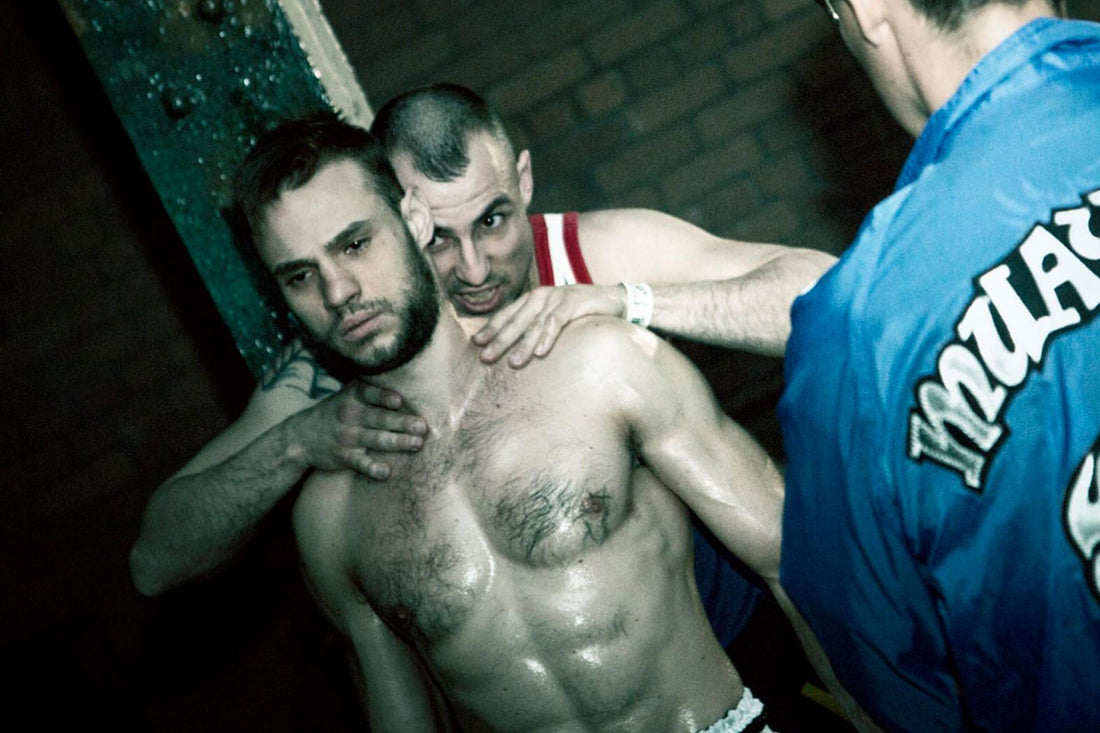
Mental Toughness and Motivation for Fighters in Martial Arts
Through my #InsideChat podcast, I am able to personally speak with a wide range of leading figures from the world of martial arts, sports, psychology, sociology and nutrition on a regular basis. One such individual I had the pleasure of speaking to and learning from recently is internationally renowned sports psychologist, Professor Joan Duda of the university of Birmingham. In this particular episode, we spoke about how motivation for fighters and mental toughness.
Which are perhaps two of the most critical elements that determine whether combat sport athletes and martial artists fulfil their potential. In this blog post written up from this talk, we’ll dive deep into the research-backed approaches coaches, fighters, and parents can apply to optimise motivation, resilience, and long-term development.
We’ll cover core strategies in the following areas:
- Creating an empowering motivational climate as a coach
- Sustaining intrinsic motivation as an athlete
- Developing mental skills and fostering mental toughness
- Providing the right parental support for youth
- Optimizing motivation and mindset across all levels
This post aims to provide coaches, fighters, and parents with actionable guidance and perspective grounded in decades of research and applied experience. Let's begin uncovering how to ignite passion and cultivate the mental fortitude necessary to excel in combat sports.
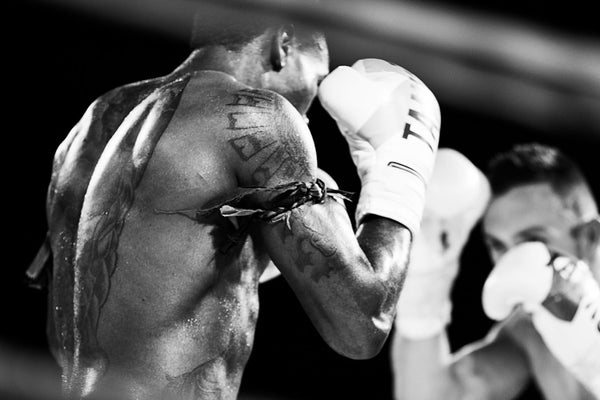
Crafting an Empowering Motivational Climate as a Coach
One of the most impactful things a coach can do is create an empowering motivational climate that gives athletes a sense of autonomy and control over their development. Joan explains that motivation relates to the reasons “why” an athlete engages in their sport. Their motivational quality has major implications for mindset, sustained engagement, and performance.
She distinguishes between autonomous motivation, where the athlete participates for internal reasons like passion for the sport, and controlled motivation, where external pressures or incentives drive participation. Research clearly shows autonomous motivation leads to the most positive outcomes. The coach's behaviors and interactions largely shape the motivational climate that determines how self-determined athletes feel.
An empowering climate centers on supporting athletes' need for autonomy and self-direction. Joan emphasizes the importance of giving athletes an active voice and element of choice in their training. For instance, after identifying areas needing improvement, the coach presents viable options for addressing them and has the athlete choose which one to focus on first.
While empowering athletes with input and decision-making, the coach maintains responsibility for providing appropriate guidance and leadership. They shouldn't fully relinquish control to athletes. As Joan explains, clever coaching means presenting good choices, explaining the rationale behind each, then eliciting the athlete's preferences. This facilitates ownership while ensuring training aligns with the athlete's needs and goals.
Conversely, highly controlling coaching that is authoritarian often backfires by undermining intrinsic motivation. When athletes feel pressured or intimidated, their passion, performance, and persistence suffers. The coach should aim to facilitate the athlete's self-driven love for excelling in their sport. Building confidence through an empowering climate allows athletes to optimize both successes and failures on their journey.
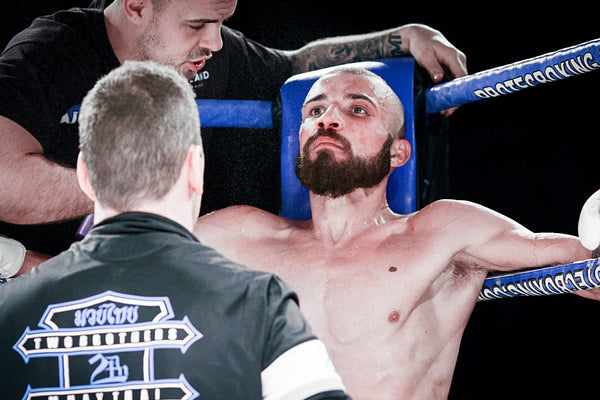
Sustaining Intrinsic Motivation as an Athlete
Autonomous motivation fueled by passion and enjoyment is key not only for youth combat sport athletes, but even professionals competing at the highest levels. Joan stresses that love for the sport needs to be maintained regardless of external rewards like money or fame. Coaches sometimes wrongly assume elite athletes are sufficiently motivated by financial gain and accolades.
But optimal, sustained engagement stems from internal drive and passion. Athletes lose their mojo when obligated participation replaces personal meaning, purpose, and enjoyment. Joan recommends athletes reflect on their original reasons for engaging in the sport to rekindle motivation when it starts to wane. Beyond recapturing why they love their discipline, they can boost autonomous motivation by continually setting new challenges that align with their values and facilitate growth.
Developing Essential Mental Skills
Alongside motivational climate, developing mental skills is a vital training element coaches and athletes shouldn't neglect. Joan explains that mental skills training aims to enhance awareness, monitoring, and regulation of thoughts, emotions, and psychological states. This allows athletes to optimise their mindset and cope with demanding situations.
Basic techniques include;
To be effective, mental skills need to be practiced systematically and integrated into physical training, not just occasional psychological exercises. Coaches play a pivotal role in prioritizing mental skills development on par with physical conditioning and technical drilling.
Mastering mental skills helps build the mental toughness required as a combat sport athlete. Qualities like resilience allow martial artists and fighters to keep battling through challenges and setbacks. A mentally tough competitor optimizes both successes and failures. Wins provide confidence to fuel further improvement, while losses become learning experiences to grow from. Maintaining motivation and fighting spirit even in adversity epitomizes mental toughness.
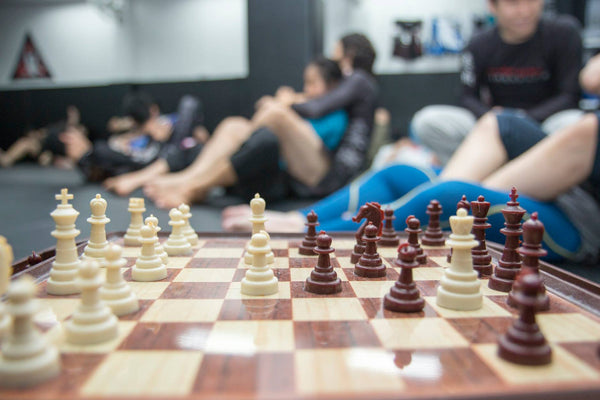
Providing the Right Parental Support for Youth
The parent-athlete relationship is just as important as the coach-athlete one when it comes to motivating youth in combat sports. Joan emphasizes that the empowering motivational climate needs to extend from the gym into the home environment. Without aligned parental support, even the best coaching can fail to nurture a child's enjoyment and commitment.
She advises parents to let kids pursue sports they are intrinsically passionate about, rather than pressuring them into activities the parents want. Athletes need to know parents will provide unconditional love and support, win or lose. Like coaches, parents can offer input while ensuring children feel in control of their sport participation.
If a child loses motivation despite best efforts to nurture autonomy and engagement, parents shouldn't force continuation. Have an open conversation about whether their passion can be rekindled, or if it's time to move on to something else they find meaningful.
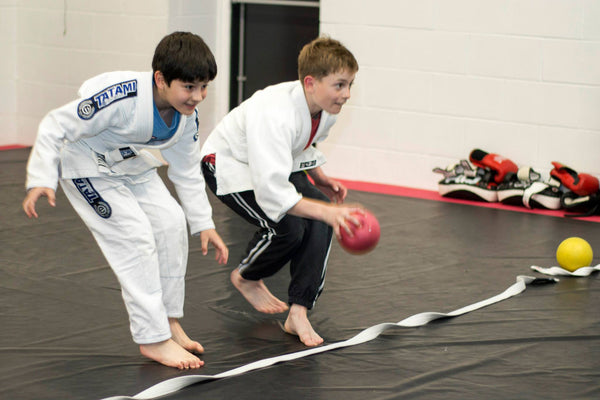
Optimizing Motivation Across All Levels
While some nuances exist across levels, the importance of autonomous motivation persists from grassroots to elite athletes. Joan explains that even world champions need to retain their intrinsic love for the sport that got them started on their journey, regardless of financial incentives gained. Coaches sometimes mistakenly believe elite athletes are sufficiently driven by fame and fortune alone.
But the principles for nurturing internal drive apply across the board. No matter whether coaching professionals or beginners, coaches need to focus on the behaviors that empower athletes and facilitate self-determined engagement. Giving them an active voice, supporting their psychological needs, and caring about them as people helps maintain passion and prevents burnout.
That said, coaches can apply autonomy-supportive strategies differently depending on context. With youth athletes, autonomy may involve simple choices between fun drills or selecting music to train to. Elite athletes have more advanced understanding of training methodology to warrant including them in decisions on program design, recovery protocols, and technical emphasis.
But the coach's objective remains the same - to foster self-driven passion by gradually transferring ownership to the athlete. Joan notes her Empowering Coaching framework distills decades of research into guidelines for motivation-focused coaching that translates from grassroots to national teams.
Building Mental Toughness
Mental toughness flows from motivation and confidence built through consistently empowering coaching. Joan defines it as the resilience that allows combat sport athletes to maximize both successes and failures on their journey of growth. Mentally tough competitors optimize wins to gain confidence and remain hungry to improve, while not getting discouraged by losses.
She explains mental toughness isn't a fixed trait, but rather can be actively developed. Beyond motivational climate, mental skills training helps cultivate awareness and regulation to maintain composure under pressure. Fighters who stay mentally tough through ups and downs have a growth mindset, take ownership of their development, and keep sight of their "why” in the sport.
Joan highlights how empowering coaching provides the optimal foundation. Athletes trained in an empowering climate consistently demonstrate greater mental toughness. They gain the resilient confidence required to endure the inevitable challenges combat sports present. Maintaining composure and focus even when things don't go your way represents a key mentality separating average and elite fighters.

The Coach-Athlete Relationship
One theme reiterated throughout our discussion is that the coach-athlete relationship is integral to empowering both youth and elite combat sport athletes. While motivational climate design principles remain consistent across sports, Joan notes each discipline has nuances in exactly how coaches interact with and provide instruction to athletes.
In a team setting, she explains coaches may need to elicit perspectives from the group and have the team determine certain norms. But the autonomy-supportive foundation persists regardless of whether coaching individuals or a squad. Having a growth-oriented relationship built on trust enables coaches to give constructive feedback that athletes embrace rather than resist.
No matter how many athletes someone coaches, the essential principles discussed apply. Joan stresses that one-on-one interactions, whether brief or extensive, must support athlete self-determination. The Quantity of coaching time does not change the mandate to facilitate ownership and intrinsic motivation. Coaches interacting with large groups simply need to strategically capitalize on individual contact opportunities and find creative ways to inject athlete choice into the training flow.
But the motivational climate established by ongoing coach behaviors remains more important than any particular program structure or training methodology. The coach-athlete relationship provides the foundation for unlocking passion, resilience, and fighting spirit.
Watch and Listen to the full podcast between myself and Professor Joan Duda below
Takeaways for Coaches
Here are some top takeaways from the insights discussed that coaches can apply:
- Facilitate an empowering motivational climate centered on autonomy support. Provide meaningful choices, explain rationales, elicit preferences.
- Don't relinquish all authority, but progressively transfer ownership to athletes in their development journey.
- Recognise the risks of controlling behaviors. Avoid coercion and over-reliance on pressure. Intimidation backfires.
- Nurture intrinsic motivation. Help athletes reconnect to their “why” and sustain passion for the sport.
- Make mental skills development a regular priority, not an occasional activity. Integrate training into practices.
- Lead by example and remain empowering regardless of training or competitive context.
- Care about athletes as people first. Relationships enable high-quality motivation.
- Create collaborative coach-athlete relationships that build trust and shared understanding.

Takeaways for Athletes
Key tips fighters can apply:
- Reflect on why you love your sport. Reconnecting to your purpose and passion fuels motivation.
- Embrace self-driven reasons for training and competing. Don't overly fixate on external rewards.
- Proactively communicate with your coach. Share your perspectives and ask questions.
- Make time to sharpen mental skills like visualization, self-talk, and arousal regulation.
- Focus on self-improvement rather than comparing yourself to others.
- Maintain composure and don't dwell on mistakes. Rebound quickly from setbacks.
- Develop a growth mindset. View challenges and losses as opportunities to improve.
- Trust your preparation and abilities, even in high-pressure situations.
Takeaways for Parents
Recommendations parents can implement:
- Make sure your child participates in sports they are intrinsically motivated by. Avoid coercing participation in activities you prefer.
- Provide unconditional support regardless of competitive outcomes. Love them win or lose.
- Avoid angrily reacting to poor performances. Keep perspective and don't pile on more pressure.
- Have open communication with your child and discuss their sport motivation.
- If intrinsic motivation disappears, have honest conversations before forcing continued participation.
- Prioritize your child developing resilience, character, and a strong work ethic through sport.
- Be a source of calm support and stability, not volatility.
- Collaborate with coaches so motivational climates align between home and training environments.
Optimising Motivation & Mental Toughness in Summary
To wrap up, here are some core principles from our extensive discussion:
- An empowering, autonomy-supportive motivational climate catalyzes passion and engagement.
- Intrinsic motivation is crucial - coaches and parents must nurture internal drive.
- Mental skills training develops awareness and regulation to optimize mindset.
- Resilient confidence emerges from consistently empowering environments.
- Athletes need empowering support from both coaches and parents.
- Relationships centered on trust allow constructive communication.
- Motivational principles apply from grassroots to elite combat sport athletes.
- Passion for the sport must be sustained long-term, not worn down by pressure.
- Having grit to rebound from setbacks and failures epitomizes mental toughness.
By implementing these insights, coaches, athletes, and parents can unlock the motivation and mental strength necessary to excel in martial arts, boxing, kickboxing, MMA, wrestling and any combative discipline. Training both the body and mind is required to fulfil one's potential.
Related Content
If you enjoy this article then you may well love 7 Great Muay Thai books you NEED to have on your bookshelf or 10 of the Best Dutch Kickboxing Gyms you should visit in 2023 as already featured on this site.
Warrior Marketplace
Here, you can also learn more about all of the other exceptional exceptional Muay Thai, Kickboxing, Boxing, Karate and Taekwondo Instructional Volumes featured on the Warrior Collective!
Thanks for reading, I hope you enjoyed reading this article on How to train Muay Thai on your own without a coach or training partner, please like, share and don't forget to subscribe to the Warrior Collective Youtube Channel for great training videos each week!!
Keep up to date with the Warrior Collective
